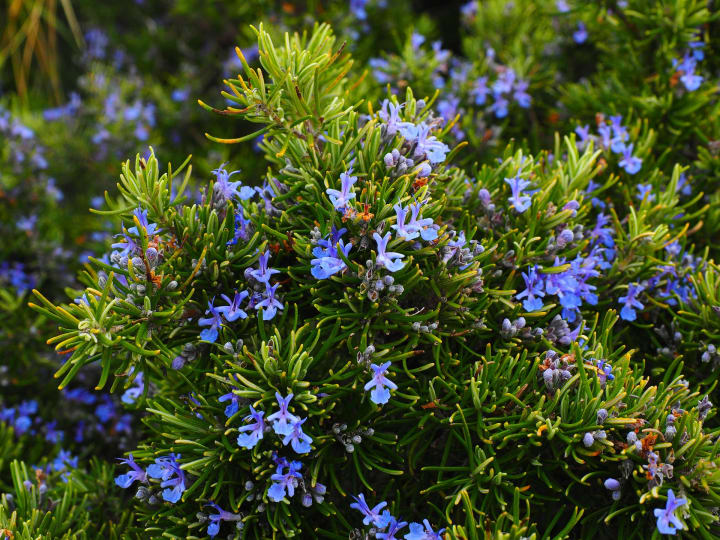
In this comprehensive guide, we will introduce you to the top 10 must-have medicinal plants that you can easily grow in your own home garden. Medicinal plants have been used for centuries to treat various ailments and provide natural remedies for common health issues. By cultivating these plants in your garden, you not only have easy access to natural healing, but you also contribute to the sustainability of the environment. Let's delve into the world of herbal medicine and discover the incredible benefits these plants offer.
1. Aloe Vera (Aloe barbadensis miller)
Aloe Vera is a popular succulent plant known for its soothing properties. The gel inside its leaves is packed with vitamins, enzymes, and amino acids, making it a fantastic remedy for skin irritations, burns, and wounds. Additionally, Aloe Vera has immune-boosting and anti-inflammatory effects when consumed internally, promoting better digestion and overall well-being.
2. Lavender (Lavandula angustifolia)
With its delightful fragrance and gorgeous purple flowers, Lavender is more than just an ornamental plant. It possesses calming and relaxing properties that can help reduce stress and anxiety. Lavender essential oil is widely used in aromatherapy to induce a peaceful night's sleep. Moreover, Lavender can be used topically to soothe insect bites and minor skin issues.
3. Peppermint (Mentha piperita)
Peppermint is a refreshing herb that not only adds flavor to your dishes but also provides numerous health benefits. It aids in digestion, alleviates headaches, and relieves respiratory issues. The menthol present in Peppermint acts as a natural decongestant, making it an excellent choice for relieving cold and flu symptoms.
4. Chamomile (Matricaria chamomilla)
Often consumed as a calming tea, Chamomile is a powerful herb with anti-inflammatory and anti-bacterial properties. It helps soothe upset stomachs, reduces menstrual cramps, and promotes relaxation. Chamomile essential oil can be applied topically to soothe skin conditions such as eczema and psoriasis.
5. Echinacea (Echinacea purpurea)
Echinacea is renowned for its immune-boosting abilities. It stimulates the production of white blood cells, enhancing the body's defense against infections. This beautiful flowering plant is commonly used to prevent and reduce the duration of colds and flu. Additionally, Echinacea has anti-inflammatory properties, making it beneficial for skin health as well.
6. Ginger (Zingiber officinale)
Used both in culinary and medicinal applications, Ginger is a potent anti-inflammatory herb. It aids in digestion, relieves nausea, and eases muscle pain. Ginger tea is a popular remedy for combating motion sickness and morning sickness during pregnancy. Furthermore, Ginger's warming properties make it an excellent herb for improving blood circulation.
7. Rosemary (Rosmarinus officinalis)
Rosemary is a versatile herb with a delightful fragrance. It contains antioxidants that help protect the body's cells from damage caused by free radicals. Rosemary also improves memory and concentration, making it an ideal herb for students or those who want to boost cognitive function. The essential oil of Rosemary can be used in massage to relieve muscle tension and improve circulation.

Click here to start your journey to natural health.
8. Calendula (Calendula officinalis)
Calendula, also known as Marigold, is a bright and cheerful flower that possesses anti-inflammatory and antiseptic properties. It is commonly used to promote wound healing and soothe skin irritations. Calendula oil is gentle enough to be used on sensitive skin and is often found in natural skincare products.
9. Lemon Balm (Melissa officinalis)
Lemon Balm is a lemon-scented herb that belongs to the mint family. It has a calming effect on the nervous system, making it an excellent herb for reducing stress and anxiety. Lemon Balm tea can also aid in improving sleep quality and reducing insomnia. Additionally, this herb has antiviral properties, helping to combat cold sores caused by the herpes virus.
10. Sage (Salvia officinalis)
Last but not least, we have Sage, a herb with a long history of medicinal use. It has powerful antimicrobial properties that make it effective in treating throat infections and dental issues. Sage tea can also provide relief for digestive problems and hot flashes associated with menopause.
Conclusion
Creating your own home garden with these top 10 must-have medicinal plants not only adds beauty and fragrance to your surroundings but also empowers you with natural remedies for various health concerns. Whether you're looking to improve digestion, reduce stress, boost immunity, or soothe skin irritations, these herbs have got you covered.
Remember, the key to a successful home garden lies in providing the right conditions for each plant to thrive. Regularly water, fertilize and provide adequate sunlight to enjoy a bountiful harvest of these healing herbs.






Comments
There are no comments for this story
Be the first to respond and start the conversation.